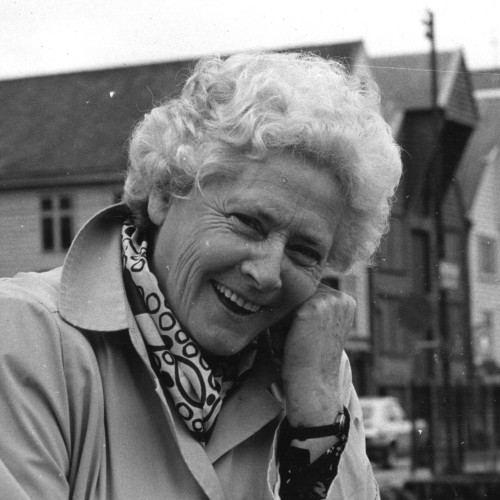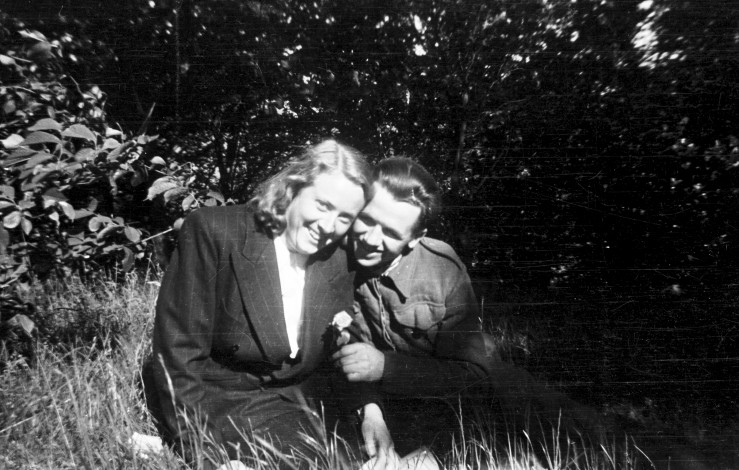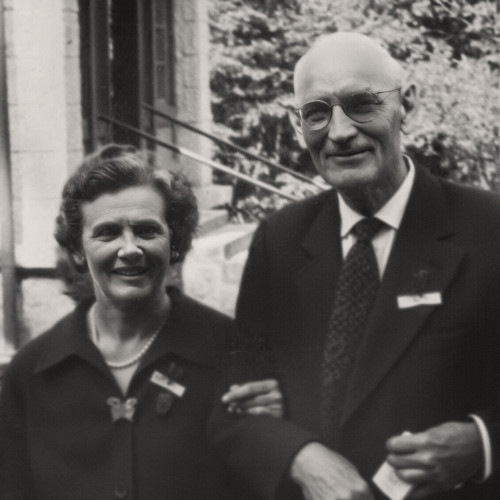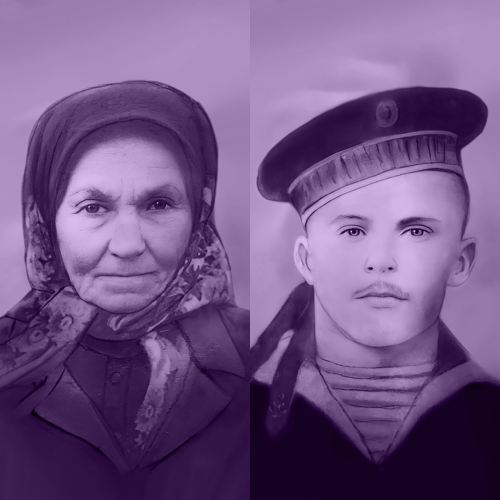Svensson Bernacka Walborg - Instytut Pileckiego

Her first contact with Poles dated back to the Second World War, when she was helping prisoners of the German labor camp in Sandnes, a city located less than 16 kilometers from Stavanger.
She came from Stavanger, a large port city in the south of Norway. Under threat of imprisonment, Walborg smuggled food, clothes and medicaments, as well as relayed frontline news she had heard on the radio. It was then that she met Antoni Bernacki, a Polish infantry soldier who, as a prisoner of war, worked at building bunkers in Stavanger.
What started as a chance meeting turned into a love story. In 1946, Walborg
followed Antoni to Poland, and a year later she married him and took Polish
citizenship. The couple settled in Nowy Sącz, where they ran a horticultural
farm. They had four children. For Walborg, Poland became a second home.
In 1980, Walborg made the difficult decision to move back to Norway with
her two younger children, but she traveled regularly between Stavanger and
Nowy Sącz whenever possible. She formed a strong bond with Poland and
its residents, who suffered great economic hardship under the communist
rule. This prompted Walborg to organize help for the people of Nowy Sącz,
among whom she had lived for more than 30 years. Working with a group of
Norwegian friends, she sent the first humanitarian transport before Martial
Law was declared in Poland on 13 December 1981. Thanks to her efforts, more than 40 containers with medicaments, food and clothes were collected and delivered to Poland. It was also through her help that more than 800 Norwegian families established contact with the residents of Nowy Sącz who were in need of assistance. After the Martial Law was abolished, Walborg continued her aid work, organizing summer stays in Norway for Polish children from impoverished families and conducting other activities. She passed away on 9 November 2005 in Stavanger.
“It was said that her life was a lesson in selflessness and brotherhood
between nations. She had the gift of uniting people and knew how to
foster a sense of solidarity. She was a remarkable person. She came from
a country that is perceived as cold, but her heart was very warm. She
exuded joie de vivre, selflessness and honesty. She drew people to her
and shared the best she had with them.”
A recollection by Alicja Kalita, a resident of Nowy Sącz: Dwa serca przestały bić, “Dziennik Polski”, 16 November 2005

See also
- Oksana Karpiuk (1892-?)

awarded
Oksana Karpiuk (1892-?)
Oksana found the children at nightfall. She hid not only the youngest members of the Polish family at her home, but also the elderly – the parents and the grandmother.
- Berta Ludvighová (1903–1983) Otto Ludvigh (1898–1987)

awarded
Berta Ludvighová (1903–1983) Otto Ludvigh (1898–1987)
The Kežmarok house was a unique location for Polish couriers and refugees: they could rest and recuperate there, eat a meal, or obtain necessary assistance.
- Sawa Kowtoniuk (1888–ok. 1970) Ustyna Kowtoniuk (1895–ok. 1980)

awarded
Sawa Kowtoniuk (1888–ok. 1970) Ustyna Kowtoniuk (1895–ok. 1980)
The Kovtoniuks gave shelter to several families: the Sławińskis, Romanowskis, Maciaszeks, and the Okólskis.


